
Welcome to your official resource hub for information on PlayStation VR. We’re covering everything, from the setup requirements to the technical specifications and beyond. If you have a question about PS VR, this guide should have an answer. And if it doesn’t have what you are looking for, just leave us a note in the comments below. We’ll do our best to update this continually before, during, and after launch.
Now… on to the Ultimate FAQ!
Is there a new PlayStation VR model? How is it different?
A hardware update to PlayStation VR is being prepared. The new version, model number CUH-ZVR2, features an updated design that enables the stereo headphone cables to be integrated with the VR headset and a slimmer, streamlined connection cable. There’s also an updated Processor Unit that supports HDR pass through, enabling users to enjoy HDR-compatible PS4 content on a TV without having to disconnect the Processor Unit in between the TV and the PS4 system. This function can be used only when the VR headset is turned off.
When will the new PS VR model become available in North America? How much will it be?
We will share details on the launch timing in North America at a later date. The pricing of the PS VR bundles will remain the same.
How can I distinguish between the old PS VR headset and the new one when I’m purchasing?
The packaging for PlayStation VR will change slightly when the new model hits stores. To differentiate, look for the model number printed on the box. The previous PS VR’s model number is CUH-ZVR1, and the new PS VR’s model number is CUH-ZVR2. Also, the product image on the packaging will be updated to show changes on the new model, like the integrated headphones on the VR headset.
If I already own a PS VR, can I swap out my old Processor Unit with the updated one?
Because the cables of CUH-ZVR1 and CUH-ZVR2 are different, you cannot swap the Processor Units.
Are the PS VR games I already own compatible with the new model?
Yes, all PS VR games are compatible with both PS VR models.
Q: What is PlayStation VR? How much does it cost?
Update: Starting September 1, 2017, PlayStation VR is available in a new bundle that includes PlayStation Camera. Full details here.
PlayStation VR is our virtual reality system for PlayStation 4 available October 13. The core product includes the PS VR system which includes the PS VR headset, headphones and all cabling required with a suggested retail price of $399.99 USD / $549.99 CAD. The PlayStation VR Launch Bundle was available to customers that pre-ordered for a suggested retail price of $499.99 USD / $699.99 CAD. It includes the PS VR system, PlayStation Camera, two PlayStation Move Motion Controllers, and a copy of PlayStation VR Worlds. Both versions include a demo disc (which will also be available on PS Store after the product launches) and The Playroom VR will be available as a free download from PlayStation Store to all PS VR owners.
Q: What do I need to own to experience PS VR?
PlayStation VR allows you to experience the future of gaming through virtual reality with a PS VR system, your PS4 and PS Camera. Most games utilize the DualShock 4 Wireless Controller. Many PS VR games give you an option to enhance your experience through the use of two PlayStation Move motion controllers, while there are a limited number of games that require two PlayStation Move motion controllers. The PS VR exclusive sci-fi FPS game, Farpoint, utilizes the PS VR Aim Controller to offer a realistic and precise way to control the game.
Q: What are the weight and measurements of PS VR?
It is approximately 1.3lb (excluding cable) and approximately 7.4 x 7.3 x 10.9 inches (width × height × length, excludes largest projection, headband at the shortest)
Q: What is VR?
VR stands for Virtual Reality, which is a simulation of another reality created by designers and programmers. Currently the PS VR system delivers a virtual reality experience for your eyes and ears through the combination of the 360-degree 1:1 tracking of your head, wide field of view, stereoscopic images delivered with a high refresh rate at 120Hz, and binaural 3D audio. These combine to make your brain think you’ve been transported to another world. This feeling is often referred to as a “sense of presence.”
Q: Will I be able to play non-VR games and watch video content on PS VR?
PS VR has a feature called Cinematic Mode, which lets users enjoy content in 2D, including PS4 games and movies, on a giant virtual screen while wearing the VR headset. The PS Camera is required for initial setup, but not when actually using Cinematic Mode.
Q: Where can I try PS VR before I decide to buy?
In the US and Canada, hundreds of retail stores are conducting hands-on demos of PlayStation VR. You can find the closest store to you right here.
Q: When can I buy PS VR?
In the US and Canada, PlayStation VR preorders opened in March and have sold out. But there will be units available at participating retailers nationwide on launch day, October 13, 2016. Click here to learn more.
Q: How can I pre-order PS VR?
Our three separate waves of pre-orders for PS VR have concluded. If you were not able to pre-order, we are planning to have units available to purchase at retailers nationwide once the device is available on October 13, 2016.
Q: When I’m using PS VR, will other people in the room be able to experience what I’m seeing?
Yes, PlayStation VR displays what you’re seeing in VR or a completely different image as a 2D image on your TV screen via a feature we call “Social Screen.” This allows others to observe and, in some cases, play alongside you. For example, the free launch game The Playroom VR offers several experiences where players are working with, and against, one person wearing the PS VR headset.
Q: Is there a particular age I should be at to use PS VR?
Age 12 and up.
Q: How does PS VR work?
PlayStation VR (PS VR) is a headset that displays a stereoscopic (a different image is in each eye) view of Virtual Reality (VR) content generated by the PS4 system. The headset contains blue LED tracking lights and motion sensors that are used in conjunction with the PS Camera to track the position and orientation of your head in real-time. VR games and applications use this tracking of your head to render immersive 3D visuals and audio that put you into a virtual world. The PS4 and PS Camera also track DualShock 4, PlayStation Move motion controller, and PlayStation VR Aim controller to allow you to interact with this virtual world. PlayStation Move controller and PlayStation VR Aim controller offer a more realistic and precise way to control games, and provide an unbelievable sense of presence in the virtual world.
Q: What are the specs on PS VR’s screen?
PS VR uses a single 5.7” 1920 x 1080 resolution full-color OLED RGB display, also known as “1920 x RGB x 1080.” Unlike other VR displays, the PS VR display uses full Red, Green and Blue sub-pixels to produce a full color pixel. There are 1920 Red, Green and Blue sub pixels for each of the 1080 lines of pixels, so this is referred to as 1920 x RGB x 1080. This enables PS VR to further immerse the player and deliver a strong sense of presence.
Q: What is PS VR’s latency?
Low latency is critical to delivering an engaging and comfortable VR experience, and PS VR’s latency comes in at less than 18ms (0.018 seconds).
*Recent research in VR has deemed 20ms as being the highest acceptable latency before people notice the lag in VR.
Q: What is the refresh rate of the PS VR display?
The PS VR OLED display can refresh at 90Hz (90 times per second) or at 120Hz (120 times per second) depending on the VR game or application.
Q: How can a game run at 60 frames per second, but we see it at 120Hz in PS VR?
PS VR games and applications utilize a feature called “reprojection.” This technique takes the last output image at 60Hz and creates a new image at 120Hz based on the latest head movements made by the user. This is not the same as video frame interpolation and does not introduce any lag in the images being presented by the PS VR OLED screen.
Q: Will we see PS VR games running natively at 90fps and 120fps?
Yes. There are already games in development that run natively at 90fps and in the future we may potentially see some games running natively at 120fps as developers become more experienced with creating games for PS VR.
Q: What is the Processor Unit and what does it do?
The Processor Unit is a small box that comes with your PS VR, and connects your PS VR to your PS4 and TV and provides HDMI cable management, enabling Social Screen TV output, 3D audio processing, and Cinematic mode.
Front
A ) Status indicator
– White: Powered on
– Red: Rest mode
B ) AUX port
C ) HDMI output port
Rear
A ) HDMI TV port
B ) HDMI PS4 port
C ) USB port
D ) DC IN 12V connector
E ) Vent
Q: What do you mean by “HDMI cable management”?
The Processor Unit acts as an HDMI splitter, providing images to PS VR and to your TV. When the PS VR headset is off or in the system User Interface, the TV will show the normal PS4 output. When a PS VR game or application is launched, the TV will show the Social Screen output image.
Q: Does the Processor Unit provide extra processing power to PS4?
No. The Processor Unit only assists the PS4 with 3D audio processing, HDMI cable management, Cinematic Mode, and the Social Screen TV output.
Q: How big is the Processor Unit, and how much does it weigh?
It is approximately 12.9oz in weight and approximately 5.6 x 1.4 x 5.6 inches (width × height × length, excludes largest projection)
Q: Does the Processor Unit support 4K and HDR pass through?
The PS VR Processor Unit (PU) supports video pass through so that you can enjoy regular non-VR content on your TV when you have the PS4 connected to the TV via the PU and the PU is connected to power via the AC adapter and the PS VR headset is not in use. This pass through support works for regular 1080p signals and also supports 2160p (UHD or ‘4K’) content in YUV 420 color format at up to 60 Hz from a PlayStation Pro.
However, HDR signals are not supported for pass through by the PU. This applies to both 1080p and 2160p HDR. If you have a HDR capable TV and want to view PS4 content in HDR, it is necessary to cable the PS4 directly to the TV.
Q. How long is the cable between the PS VR headset and the Processor Unit?
The cable between the PS VR headset and Processor Unit is made up of two parts – one that extends out of the headset itself, and the Headset Connection Cable. The total length of the two cables is approximately 14.4ft.
Q: How many games are currently in development for PS VR?
Hundreds of developers are currently working on games and experiences for PS VR, with approximately 50 titles slated to launch before the end of 2016. Stay tuned to PlayStation.Blog for more information on games and experiences in development.
Q: What types of games are available for PS VR?
PlayStation VR is a brand new medium for playing games and experiencing media, and its game lineup spans across genres including shooters (RIGS Mechanized Combat League, Until Dawn: Rush of Blood), puzzle (SuperHyperCube), racing (Driveclub VR), horror (Resident Evil 7 biohazard, due out 2017) and more. However, given the massive leap in interactivity and engagement that PlayStation VR provides, we are eagerly anticipating the creation of all-new gaming genres and entertainment experiences.
Q: How will I know what games are PS VR-compatible?
Whether on PlayStation Store or in your local retailer, you will see prominent branding elements that will indicate PlayStation VR support and whether peripherals such as the PlayStation Move Motion Controller is required. See below for an example.
Q: Will there be a specific section on PlayStation Store for PS VR games?
Yes. PlayStation Store will feature a PlayStation VR-specific category.
Q: Can I play PS VR games without the headset?
You’ll need to wear the headset to experience VR. However, certain titles such as The PlayRoom VR will support local multiplayer modes that allow a PS VR user and other players to play together using PS VR’s Social Screen. In addition, there are PS4 games like Bound and Resident Evil 7 biohazard that are PS VR compatible, which gives players the option to play in or out of VR. To play these games in VR, you must wear the headset.
Q: Are any games included when I buy a PS VR headset?
The PlayRoom VR will be a free download for all PS VR owners. Both PS VR packages (core and Launch Bundle) will come with a free demo disc featuring a wide variety of playable demos.
The PlayStation VR Launch Bundle includes a copy of PlayStation VR Worlds, in addition to a PS Camera and two PlayStation Move Motion Controllers.
Q: What games are on the demo disc that comes with the headset?
The included PS VR Demo Disc will feature a number of playable demos spanning across many different games. Click here to see the full list.
Q: What is The PlayRoom VR?
The PlayRoom VR is a brand new collection of six VR games especially created for use with the PlayStation VR headset. Players can use their VR headset while up to four friends can join in on the multiplayer fun in the same room on the TV.
Every game in The PlayRoom VR offers a unique experience and is the perfect introduction to the magic of VR.
- VR Bots is a welcome lobby that places the user inside a room filled with adorable interactive robots.
- Monster Escape is a competitive party game for up to five players (1 VR player vs 4 players on TV). The player in the PS VR headset becomes a huge monster destroying a miniature city. One to four additional players use their DualShock 4 controllers to fight the Monster in a fun and epic battle.
- Cat and Mouse is a competitive party game for up to five players (1 VR player vs 4 players on TV). The player in the PS VR headset becomes a cat ready to pounce to protect his kitchen from the mice players controlled with the DualShock 4 on the screen.
- Ghost House is a cooperative communication game where players must work together to clear a haunted house from the ghosts within a time limit. The player in the PS VR headset uses the DualShock 4 to shine a flashlight and shoot ghosts, which aren’t visible to him. He must rely on the players watching the TV for instructions as to where to aim and shoot.
- WANTED! is a cooperative communication game set in the wild west, where players enter a saloon and can see several characters sitting around drinking. One of them is the bad guy, but which one?
- Platformer is a cooperative communication game, where two players (1 VR player and 1 player on TV) work together to fight their way through enemies to rescue stranded VR bots. The player in the PS VR headset takes control of a VR bot jumping, punching and using a grappling hook to rescue his lost VR Bots comrades. The TV player gets a different viewpoint on the action, flying a UFO and giving air support to the VR player.
Q: What is PlayStation VR Worlds?
PlayStation VR Worlds is a collection of five different VR experiences that have all been built from the ground up exclusively for the PS VR headset. PS VR Worlds is included with the PS VR Launch Bundle, and is available separately for $39.99. Developed by SIE Worldwide Studios London Studio, VR Worlds presents a collection of varied experiences, each designed to showcase VR in different ways. Check out detail about each experience in the PS VR Worlds collection here.
Q: How much will PS VR games cost, on average?
This will be up to the individual developer and publisher, but we expect a wide range of prices and experiences from the publishing community. Some smaller, digital-only titles may be free or cost considerably less, and titles such as RIGS: Mechanized Combat League will be $49.99 USD at launch.
Q. Do you have plans to offer PS VR games on PlayStation Plus?
We have nothing to share at this point in time, but we are looking into it.
Q: What is PS VR Cinematic mode?
This is a mode to view the PS4 system UI and all non-VR games and applications on a virtual screen. This screen has varying sizes from Small (117 inches), Medium (163 inches) and Large (226 inches), placed virtually at 6 – 10 feet away (the size of the screen may feel different depending on the individual).
Q: Will my existing, non-VR PS4 games work with the PS VR headset?
Yes, PS4 games will work using Cinematic Mode, which is used to view the PS4 system interface and non-VR games and applications on a virtual screen. Non-VR games which use the PS Camera like the original non-VR PlayRoom and Tearaway Unfolded are not supported by PS VR Cinematic mode.
Q. Can I use the SHARE button when playing non-VR PS4 games during Cinematic mode?
Yes. All SHARE features will be available for non-VR PS4 games during Cinematic mode, as long as it is supported by the game.
Q: What is the resolution of PS VR’s Cinematic mode?
PS VR presents images from a single 1920 x 1080 display split between both eyes, so the content can have a maximum resolution of 960×1080 in stereoscopic 3D. The actual resolution of the Cinematic Mode screen depends on the screen size and the resolution of the content being displayed.
Q: Does Cinematic Mode impact the framerate performance of non-VR games?
No. Cinematic Mode is provided by the PS VR’s Processor Unit and does not impact the performance of PS4 games and applications in any way.
Q: Can I change the backgrounds in Cinematic Mode to watch movies in different virtual settings?
No. The current Cinematic Mode is a virtual screen floating in a black space, like being in a dark movie theater.
Q: Will PS VR display 3D content in Cinematic Mode?
No. In Cinematic Mode, PS VR will display 3D games and films in 2D when playing on a 3D-compatible TV. When playing with non 3D-campatible TVs or without a TV, PS4 won’t play 3D games and films.
Q: In the future will PS VR support 3D content in Cinematic Mode?
We have nothing to announce at this point in time.
Q: What is the Social Screen?
The term Social Screen is what we refer to as the 2D image being shown on the TV when running a VR game or application. This output allows users who are not wearing the PS VR headset to see what the PS VR player is seeing, or to play alongside the VR player in certain games by having completely separate audio and image outputted to the TV, like The PlayRoom VR.
Q: Why is the Social Screen image displayed on the TV in 2D?
The Social Screen image displayed on the TV is a 2D, undistorted and cropped version of the right eye image that would be displayed in the PS VR headset. PS VR outputs a standard 2D image as this is supported by most TVs and no other accessories are required, so everyone in the room can enjoy it.
Q: How long can people safely wear PS VR?
PS VR has been designed to be the most comfortable VR headset on the market, and it can be worn for extended periods of time. However, we recommend you take frequent breaks when using PS VR.
Q: Is PS VR safe for my eyes?
Yes. But as with all display devices (TVs, mobile phones, tablets, etc.), we recommend taking frequent breaks.
Q: The PS VR display is very close to my eyes, will I become nearsighted with prolonged use?
No. The focal distance of the images presented by PS VR is at a distance of about 6 – 10 feet. This is similar to the optimal viewing distance required to view a 60” TV. But again, we recommend taking frequent breaks when using PS VR, just like when viewing other display devices.
Q: Can I wear my glasses inside of the headset?
Yes, the PS VR headset is designed to accommodate users that wear glasses. You can telescope the lens closer to, and farther away from, your face to get the optimal fit.
Q: I’m nearsighted, so can I use PS VR without my glasses?
This depends on the prescription of your glasses. The focal distance of the images presented by PS VR is at a distance of about 6 – 10 feet, so if you require glasses while driving or seeing your TV, you will most likely need to wear your glasses to see PS VR images clearly. However, some very wide or unusually shaped glasses may not fit.
Q: Can I walk around while wearing PS VR?
Walking is not advised. We recommend that users play PS VR games while seated for the most comfortable and safest VR experience.
Q: My head is larger than average – will the PS VR headset fit?
PS VR can adjust to comfortably accommodate a wide range of head sizes. That said, it’s a good idea to visit a local retailer to try it out for yourself!
Q: Will PlayStation VR make me feel nauseous while playing?
Players’ responses to VR gameplay can differ, but generally, the vast majority of gamers should be able to enjoy PlayStation VR gameplay. Make sure to try the PS VR demo disc to get a sense of the games and experiences you prefer. In many cases, initial discomfort experienced can fade as you become more accustomed to VR gameplay. We recommend taking frequent breaks when using PS VR, and if you experience any discomfort, discontinue playing.
Q: How much physical space will I need to play?
The recommended play space measures approximately 10 feet by 10 feet total, with the user in VR sitting about 5 feet in front of the PlayStation Camera / TV. Clear an area larger than the Play Area of all obstacles before using PS VR, and make sure that no walls, furniture, or objects can impede your VR play space.
Q: Will there be VR experiences beyond games?
Yes, there will be several non-game VR experiences coming to PS VR, including VR storytelling experiences from Penrose Studios and others. Further details of these VR experiences will be released at a later date.
Q: Will PS VR support VR entertainment apps?
In the weeks and months ahead, there will be a variety of VR experiences and media applications coming to PS VR, including those such as Hulu (in the US only), Allumette (Penrose), Invasion! (Baobab), Kismet (PsyOp), Within, LittlStar, Vrideo, and The Martian (Fox).
Q: Can I watch movies, YouTube videos and other media through the PS VR headset?
Yes, you can watch all your existing media in Cinematic Mode using PS VR. There will also be media applications designed to support PS VR.
Q: Can I play 360 video using my PlayStation VR?
A: An update is available for PS4’s Media Player that makes it possible to view videos / photos captured on a 360-degree omnidirectional camera (in equirectangular file format) on PS VR.
Q: What is the PS Move motion controller?
The PS Move motion controller is a single hand controller first introduced on the PlayStation 3 system, providing accurate 1:1 hand tracking. For supported PS VR games, the PS Move motion controller can be used in each hand, allowing you to interact with the VR worlds intuitively. In VR, the PS Move motion controller can be a representation of your own hands, a sword, a flashlight, or anything developers can imagine. The position and orientation of the PS Move motion controllers are tracked by the same PS Camera that also tracks the PS VR headset and the DualShock 4.
Q: Do I need a PS Move motion controller to play PS VR games?
The vast majority of PS VR games support DualShock 4, while offering PlayStation Move as an option for an enhanced experience. There are a limited number of titles that require the use of two PS Move motion controllers. Please check the requirements of individual games from the descriptions on the front of the PS VR software packaging or from PlayStation Store.
Q: Can I use my DualShock 4 wireless controller with PS VR?
Yes, and in some PS VR games you will see DualShock 4 with you inside the PS VR experience for even more immersion. PS Camera can track the light bar on DualShock 4, just like tracking lights on the PS VR headset.
Q: What is the PS VR Aim Controller?
The PS VR Aim Controller is a new two-handed controller designed for PS VR first-person shooter games. It will be launched at the same time as the PS VR exclusive sci-fi FPS game Farpoint. For more information about the PS VR Aim Controller, see here. Visit here for more information on the PlayStation VR exclusive, Farpoint.
Q: What is 3D audio?
3D audio simulates the effect of audio arriving at your ears from different directions and distances to more closely mimic the behavior of sound in real life. Not only does PS VR create sounds coming from front, behind, left and right, but also above and below. This type of audio greatly enhances the feeling of immersion and presence in VR over traditional audio systems like 7.1 surround sound.
Q: Do I need new headphones to experience 3D audio?
No, any wired stereo headphones or wired earbuds can support 3D audio. Stereo headphones are included with PS VR, but you can also use your preferred audio headsets if they feature a standard 3.5mm male connector.
Q: Are surround sound headphones better for PS VR?
No, any surround sound generated by the headphones themselves will interfere with the 3D audio from the PS VR headset. It is recommended to turn off surround sound mode or use standard wired stereo headphones that do not use surround sound.
Q: Can I use my PULSE wireless headset or other wireless headsets with PS VR?
Yes, but you should connect the wireless headset using a standard 3.5mm wired cable. A wireless audio connection will not work with PS VR.
Q: What controls are on the PS VR headset?
The PS VR headset has three mechanical controls to adjust the fit of the headset, and four digital controls on an inline remote to adjust volume, muting of the microphone and turning on/off the VR headset power.
Q: How can I adjust the fit of the PS VR headset?
The PS VR headset has been designed to mechanically adjust for most head shapes and allow you to wear glasses if needed. There is a button on the back of the headset that unlocks the headband mechanism and allows you to stretch open the headset over your head. Once placed on your head, above and below the button is a dial that can be turned to tighten the headband on your head to ensure a secure fit. The main part of the headset is the visor. On the underside of this, to the right is a button, that when pressed allows you to slide the visor forwards and backwards to adjust the view. You press the button to move the visor forward to accommodate your glasses or when taking a break to see your surroundings. With the button pressed you can also move the visor backward, closer to your face to get a more encompassing view of the action or when just returning to your game from a break.
Q: What is the PS VR inline remote?
Attached inline to the cable coming out of the PS VR headset is a white pendant style array of buttons and a standard 3.5mm female audio jack. This is the remote for PS VR and it allows you control some functions of the PS VR headset. This is also where the headphone jack is located, and you can plug in your standard stereo headphones or the headphones provided in the box. We designed the remote to be easy to use even while you have the headset on.
Q: What are the buttons on PS VR inline remote for?
There are four buttons: The top recessed button is for power on/off, the next is for muting the microphone built into the PS VR, the next is for increasing the volume of the audio delivered to the audio jack, and the final button is for decreasing the volume.
Q: Can I play online games with PS VR?
Yes, developers can support online multiplayer features in PS VR titles. Examples include RIGS Mechanized Combat League from Guerrilla Games, EVE Valkyrie from CCP Games, and Eagle Flight from Ubisoft.
Q: Can two people using PS VR headsets play together on one PS4 console?
No. PS4 only supports one PS VR headset at a time.
Q: Can I use game and system voice chat with PS VR?
Yes the PS VR has a built in microphone that can be used for multiplayer voice chat.
Q: Does the SHARE button work when playing PS VR games?
Yes, you can capture photos and videos using the SHARE button. The resulting capture will be similar to the image presented on the Social Screen.
Q: Can I broadcast / live stream PS VR gameplay?
Yes, you can broadcast your PS VR experiences via Twitch, YouTube, or other streaming video services using the SHARE button located on DualShock 4. The resulting video feed will be similar to what users experience on the Social Screen.
Q: Can I capture or live stream my PS VR gameplay session?
Yes, in the same way you can stream or capture your standard PS4 gameplay, the PS VR streaming works the same way. The stream view will be the same view as the Social Screen mentioned above.
Q. Can I live stream myself (show my face) while broadcasting PS VR gameplay?
No, when playing PS VR, the PS Camera is being used to track the LEDs on the headset, so it cannot be used to record your face during the broadcast.
Q: Do I need to be connected to the internet to play PS VR games?
An internet connection is not required, unless you plan to play an online multiplayer-enabled title or want to download a title from PlayStation Store.
Q: Do I need a TV to play PS VR?
You will need a TV for certain system settings, and also for certain local multiplayer games that require other users to see content on the TV using the Social Screen feature.
Q: Can someone else change the channel on my TV, or turn it off, while I play PS VR?
Yes, you can change the channel or inputs without affecting a PS VR user.
Q: Can I use PS VR with my PC or Mac?
PS VR is designed to work with PS4.
Q: Do I need a PS Camera to use PS VR?
Yes, you will need the PS Camera to use PS VR. It’s available separately, or as part of the $499.99 USD Launch Bundle.
Q: Do I need the new PS Camera for PS VR? Are there any features that will only work with the new camera?
No, the redesigned PS Camera will work just the same as the older design.
Q: Can I use PS VR that was purchased outside of the US and Canada?
PlayStation recommends that all users purchase PS VR at the region of their residence to fulfill safety regulations of the product and to guarantee the best customer service.
Q: Does the room need to be dark when I play PS VR?
Ambient lighting will generally not affect PS VR gameplay. Bright light sources directly behind the person using PS VR, lights coming in from windows and room lights, and lights reflecting off mirrors can interfere with the PS Camera and interrupt the tracking of the LED lights on the headset. It is recommended to eliminate bright light sources behind the PS VR player.
Q: I heard that mirrors and shiny surfaces can be a problem when using PS VR. Is that true?
Yes, the PS Camera is expecting to see only a single set of tracking LEDs. Mirrors that are in the view of the PS Camera will confuse the tracking. Smaller shiny surfaces are generally fine, but if you have problems with tracking performance then these may be contributing to the issue.
Q: How do I pair a PS VR headset to a PS4?
Unlike a DualShock 4 and other wireless devices that can connect to a PS4, the PS VR does not need to be paired to a PS4 as it is directly connected via HDMI and USB cables. Please refer to the Quick setup guide in the box or the tutorial video for how to connect your PS VR system to your PS4.
Q: How do I navigate the PS4 interface using PS VR?
The PS VR headset will show PS4’s standard home screen in Cinematic Mode. From there, you can select and launch PS VR games.
Q: Are there “settings” I can enable for PS VR, i.e. sensitivity, etc?
Within the PS4 “Settings” section, under “Devices” you can find the “PlayStation VR” device menu. From here you can change “Screen Brightness” of the PS VR screen, “Screen Size” of the virtual theater screen when PS VR is in Cinematic mode, “Measure Eye-to-Eye Distance” to optimize the 3D video you see inside the headset, and “Adjust Tracking Lights” to make adjustments so that PS Camera can correctly track the VR headset and peripherals such as DualShock 4 and PS Move motion controllers.
There are also options to check your placement and surroundings by seeing what the PlayStation Camera can see. There is also an option to check if you are wearing the PS VR headset correctly, and you can adjust the camera after it has been initially placed in your environment. Some of these settings are also available through a long press of the PS button on your DualShock 4, which will bring up the PS4 interface over the current paused game or application.
Q: Does PS VR require its own device software updates?
If your PS4 system has a new PS VR device software installed, your PS VR will begin updating automatically once it is connected to PS4 and turned on. Also, your PS4 must be installed with the latest system software for PS VR to update. You can also check for new PS VR device software updates through your PS VR device menu under Settings.
Q: How do I switch between playing PS VR games, and PS4 games on my TV?
Once you have finished playing a PS VR game, just take off the headset and press the PS button on DualShock 4 to return to the home screen. You’ll be able to launch non-VR games. If you wear the headset, you will see the non-VR game on a virtual screen in the PS VR’s cinematic mode.
Q: Will standard PS4 games run slower if I leave the PS VR headset plugged in?
No. There is no gameplay performance penalty with leaving PS VR plugged into your PS4.
Q: Can I travel with PS VR?
Yes. The PS VR system is a certified consumer electronics device and there are no issues travelling with this. We advise you purchase a PS VR carrying bag to secure your PS VR headset and processor unit during your travels.
Q: Will I need to clean or maintain PS VR?
We recommend that you routinely clean and maintain your PS VR for the best experience. For further details, please refer to the PS VR Care & Maintenance support article.



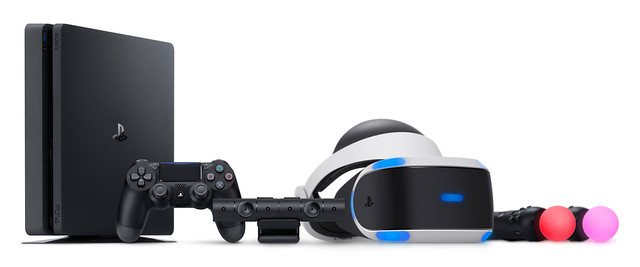


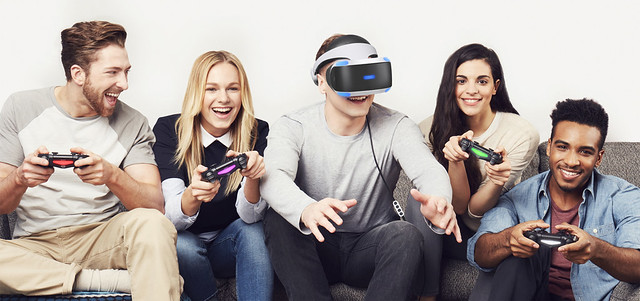
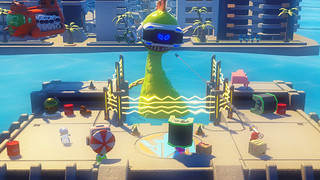
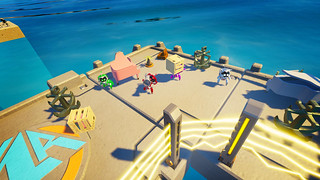
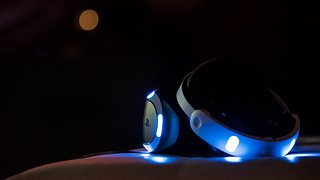
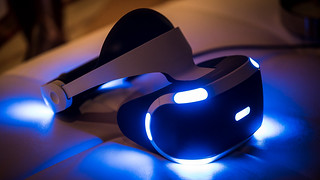
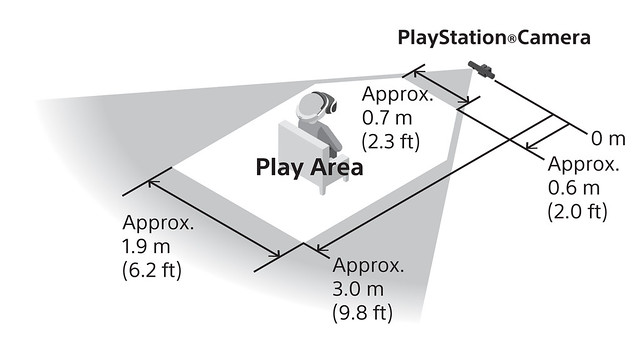
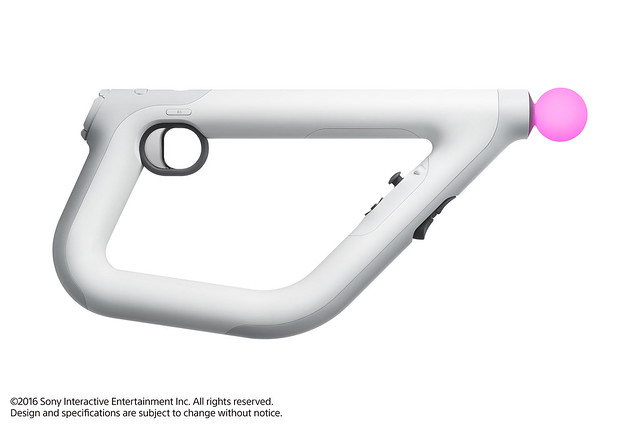
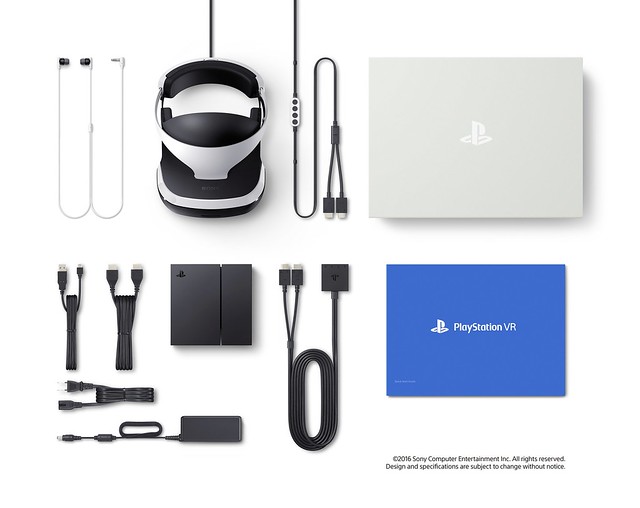









Comments are closed.
322 Comments
Loading More Comments